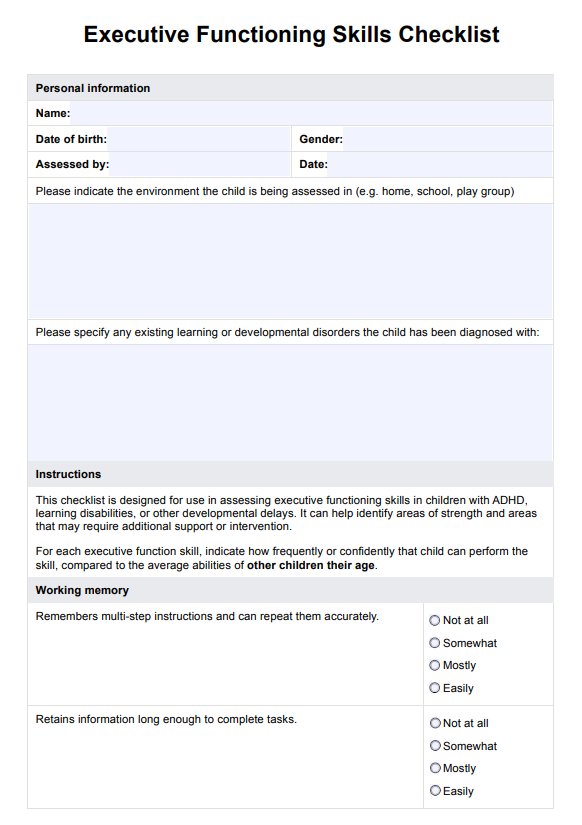Executive functions are mental abilities that help individuals manage their thoughts, actions, and emotions to achieve goals, such as planning, organizing, and self-regulation. They are associated with prefrontal cortex activity.

Executive Functioning Skills Checklist
Access our Executive Functioning Skills Checklist template, a powerful resource for supporting children in developing executive functioning skills.
Use Template
Executive Functioning Skills Checklist Template
Commonly asked questions
Executive functioning checklists are a powerful tool for identifying a child's executive functioning issues. This allows tailored strategies for enhancing executive functioning, helping to support students to build organizational skills.
Executive functioning skills are crucial to learning because they enable students to focus, follow instructions, organize their work, manage time effectively, and adapt to new information and tasks.
EHR and practice management software
Get started for free
*No credit card required
Free
$0/usd
Unlimited clients
Telehealth
1GB of storage
Client portal text
Automated billing and online payments











